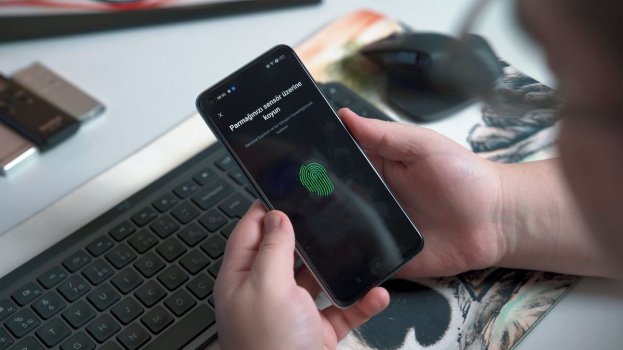Could a blockchain-based ecosystem strengthen the security of digital ID and future-proof the next generation of online interactions?
Perhaps the most valuable asset we have online is our identity. It allows us to buy and sell goods, even open a bank account.
It’s understandable then, that users might have qualms about trusting their identifying personal data to blockchain (the technology behind crypto), which has experienced more than $1bn (£0.87bn) in fraud since the start of 2021.
Trust, though – along with greater security – is the object of the exercise. Blockchain-based digital ID is based on the principle of self-sovereign identity (SSI), whereby users can share selected information with vendors or service providers instead of their entire identity. The analogy is of a person walking into a bar and presenting a trusted credential that only showed they were of legal age to buy an alcoholic drink – instead of presenting an ID card that might also reveal their name and address details.
SSI means that the interacting parties know they can trust each other because they can see the key information in question. And blockchain-based digital ID could make this a reality.
“This is significant because currently there isn’t a way for businesses online to interact with contractual trust in a peer-to-peer way that isn’t intermediated by a third-party login service,” says John Jordan, executive director of the Government of British Columbia’s Digital Trust Service, which is starting to implement blockchain-based ID systems for citizens and local businesses. “Blockchain presents the opportunity to have confidential friendships and business partners on a foundation of trust.”
Continue reading: https://www.raconteur.net/digital/how-blockchain-can-make-digital-id-more-secure/
Perhaps the most valuable asset we have online is our identity. It allows us to buy and sell goods, even open a bank account.
It’s understandable then, that users might have qualms about trusting their identifying personal data to blockchain (the technology behind crypto), which has experienced more than $1bn (£0.87bn) in fraud since the start of 2021.
Trust, though – along with greater security – is the object of the exercise. Blockchain-based digital ID is based on the principle of self-sovereign identity (SSI), whereby users can share selected information with vendors or service providers instead of their entire identity. The analogy is of a person walking into a bar and presenting a trusted credential that only showed they were of legal age to buy an alcoholic drink – instead of presenting an ID card that might also reveal their name and address details.
SSI means that the interacting parties know they can trust each other because they can see the key information in question. And blockchain-based digital ID could make this a reality.
“This is significant because currently there isn’t a way for businesses online to interact with contractual trust in a peer-to-peer way that isn’t intermediated by a third-party login service,” says John Jordan, executive director of the Government of British Columbia’s Digital Trust Service, which is starting to implement blockchain-based ID systems for citizens and local businesses. “Blockchain presents the opportunity to have confidential friendships and business partners on a foundation of trust.”
Continue reading: https://www.raconteur.net/digital/how-blockchain-can-make-digital-id-more-secure/

